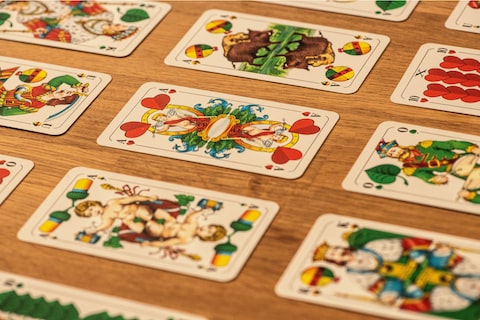Tired of feeling overwhelmed with the number of games in your collection? Game overload is a common struggle for individuals between the ages of 10-35 who have a passion for gaming. Managing and organizing your game library can make a significant difference in your gaming experience. Follow these tips to keep your games in order and enjoy a stress-free gaming session.
1. Categorize Your Games
Start by categorizing your games into genres. This will help you quickly find the type of game you’re in the mood for. Create categories such as action, adventure, strategy, sports, and RPG. Arrange your games accordingly.
2. Create a Digital Inventory
Digital platforms, such as game libraries on consoles or PC, offer efficient ways to organize your games. Utilize these features to create a digital inventory of your collection. Sort games by title, release date, or genre for easy access.
3. Prioritize Your Playlist
With so many games at your disposal, it’s crucial to prioritize what to play next. Create a playlist or a backlog of games you want to focus on. This will prevent you from being overwhelmed by choices and allow you to complete games one at a time.
4. Set Realistic Goals
Avoid acquiring new games until you’ve finished the ones you already have. Setting realistic goals, such as completing a certain number of games per month, will help you manage your collection effectively and prevent it from growing too large.
5. Share or Trade Games
Consider sharing or trading games with friends or fellow gamers. This not only helps you diversify your gaming experience but also allows you to trim down your collection. You can also explore online platforms for game swapping or selling.
6. Proper Storage
Physical game collectors should ensure proper storage to prevent damage. Use game cases, shelves, or protective sleeves to keep your discs or cartridges safe and organized. Labeling each case will save you time when searching for specific games.
7. Take Advantage of Digital Platforms
Instead of purchasing physical copies, consider investing in digital versions of games. Digital libraries allow you to have all your games in one place without taking up physical space. This eliminates the hassle of physically swapping discs or cartridges.
8. Delete Unwanted Games
Letting go of games you no longer enjoy or play is essential for managing game overload. Delete unwanted games from your digital inventory or give away physical copies. This will free up space and make your collection more streamlined.
9. Take Breaks
Gaming should be enjoyable, not overwhelming. Take breaks from gaming to prevent burnout. Use this time to reevaluate your collection and decide which games to keep or remove, ensuring you have a collection that truly reflects your gaming preferences.
10. Stay Organized
Maintaining an organized game collection requires ongoing effort. Regularly update your inventory, remove duplicates, and keep track of your progress in each game. Staying organized will help you make the most of your gaming sessions and prevent game overload in the future.

